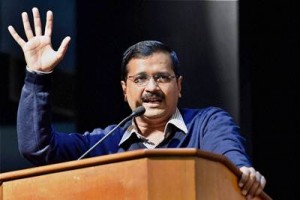New Delhi, Jan 16: In trouble brewing for the Gautam Adani-led M/S Adani Enterprises, the Central Bureau of Investigation (CBI) on Thursday said that it has registered a case against former officials of the National Co-operative Consumer Federation (NCCF) and others over alleged irregularities in supply of coal to the Andhra Pradesh Power Generation Corporation (APGENCO) in 2010.
The CBI in its FIR has named Virendra Singh, the then Chairman of the NCCF, G P Gupta, the then MD of the NCCF, S C Singhal, the then Senior Advisor of NCCF, Adani Enterprises Ltd and other unknown public servants and others for criminal conspiracy, cheating and criminal misconduct by public servants.
According to CBI, the case was filed on Wednesday after the preliminary enquiry revealed the crime by the officials named in the FIR and the Adani Enterprises was found to be true.
The FIR alleged that on June 26, 2010, APGENCO floated a tender enquiry for supply of six lakh metric tonnes of imported coal "on free on rail destination" basis to Dr Narla Tata Rao Thermal Station (NTTPS), Vijaywada and Rayalasaleema Thermal Power Plant (RTTP), Kadapa, Andhra Pradesh/RTPP via Kakinada-Vizag-Chennai-Krishnapatnam or any other ports
The same was forwarded by the Chief Engineer, APGENCO to seven PSUs -- PEC Limited, STC Limited, MSTC Limited, NCCF, MMTC, Coal India Limited and SCCL Limited.
The FIR alleged that during the probe, the Adani Enterprises used a proxy company to get the supply contract. It said, "NCCF received bids from six companies -- Adani Enterprises Ltd, Maheshwari Brothers Coal Limited (MBCL), Vyom Trade Links Pvt. Ltd, Swarana Projects Pvt. Ltd, Gupta Coal India Ltd and Kyori Oremen Ltd.
During investigation it was found that Gupta Coal India Ltd had quoted the NCCF margin of 11.3 percent, while the MBCL quoted the margin of 2.25 percent and rest did not quote any margin to the NCCF.
The FIR said the quotes of the Gupta Coal India Ltd, Kyori Oremen Ltd and Swarana Projects Pvt. Ltd were rejected by the NCCF as they were not found to be fulfilling the tender conditions.
"Post tender negotiation was done by senior officials of NCCF to give undue favour to Adani Enterprises Ltd despite it not qualifing the tender (terms)," the FIR said, adding instead of cancelling the bid of Adani Enterprise Ltd, senior management of NCCF conveyed the offer margin to the company through one of its representative -- Munish Sehgal, who was sitting in the NCCF head office. It is prima facie evident that when the bids were being processed at NCCF head office in Delhi, a representative of Adani Enterprises Ltd. was informed regarding their imminent rejection due to non-submission of NCCF margin and also that MBCL was eligible bidder quoted 2.25 percent margin," it alleged.
The CBI in its FIR, further alleged that Adani Enterprises Ltd. had given an unsecured loan of Rs 16.81 crore to Vyom Trade Links Ltd in 2008-09. "And further it was revealed that the bank guarantees of the Adani Enterprises Ltd. and Vyom Trade Links Ltd. were issues by the same branch of the State Bank of India and at the same time," it said.
"It was clear that Adani Enterprises Ltd. presented Vyom Trade Links Ltd. as a proxy company in this particular tender and Vyom Trade Links Ltd. later withdrew its offer on flimsy ground," the CBI FIR said.
"The aforesaid acts of commissions and omissions on the part of the senior management of the NCCF disclose that during their tenure, they acted in a manner unbecoming of public servants and committed irregularities by way of manipulation in the selection of bidders, thereby giving undue favours to Adani Enterprises Ltd. in award of work for supply of coal to APGENCO despite its disqualification," it added.
 "It's not suicide. It's murder. It's murder of democracy, social justice and equality. (Prime Minister Narendra) Modi ji should sack ministers and apologise to the nation," Kejriwal said in a tweet.
"It's not suicide. It's murder. It's murder of democracy, social justice and equality. (Prime Minister Narendra) Modi ji should sack ministers and apologise to the nation," Kejriwal said in a tweet.




Comments
Dalits need to join hands and fight the injustice done by the so called elite criminals. When will U guys stop living in FEAR of this upper caste.. Everybody is equal in the eyes of GOD and no human is superior in the eyes of GOD and fear only GOD not human who says they are superior. Pejawar will never help in this matter... U guys are being deceived by the so called superior.
I feel proud that Prophet Muhammad pbuh taught us a beautiful teachings which says:
All mankind is from ADAM & EVE, An arab has no superiority over an non Arab NOR a non arab has any superiority over an Arab, Also A white has no superiority over black NOR a black has any superiority over white EXCEPT by PIETY and GOOD ACTION.
What it means is also A DALIT is as equal as any human being. Just like a MUSLIMs or any other people in the EARTH> When we follow God's religion. FEAR NOT. Fight for the oppression done by this Foxes who deceive people and keep the society in FEAR.
Add new comment